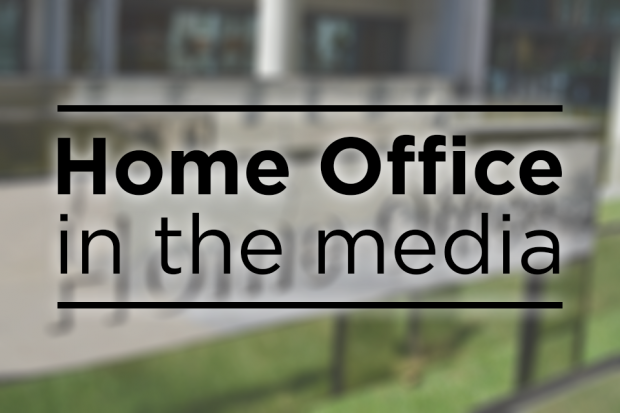
Today's Home Office related news includes a Lords EU Home Affairs sub-committee report on movement of people and a Home Affairs Select Committee report on child refugees.
House of Lords on immigration post-Brexit
There is coverage this morning of a Lords EU Home Affairs sub-committee report on immigration after Britain leaves the European Union.
A Home Office spokesperson said:
Once we have left the European Union it will be the government that sets our immigration rules. We are currently considering the various options as to how EU migration might work once we have left and it would be wrong to set out further positions at this stage.
Child refugees
There is also coverage today of a Home Affairs Select Committee report on child refugees. We will consider the findings of this report and respond in due course but the Home Office has issued a statement outlining the government's support for child refugees.
A Home Office spokesperson said:
This government provided 8,000 vulnerable children with refuge or other forms of leave this year and by the end of this Parliament we will have resettled 23,000 people from Syria, the Middle East and North Africa – half of whom will be children.
Our strategy is clear. We believe the best way to help the most vulnerable children is by resettling refugees directly from the camps in and around Syria. This stops traffickers ruthlessly exploiting vulnerable people and will prevent people from embarking on perilous journeys across the Mediterranean.
But it’s not job done when these children get to the UK – they require ongoing support and protection. That is why we welcome all offers of extra places from local authorities. These places can be used to support the unaccompanied children already being cared for in the UK and those who continue to arrive and claim asylum.
